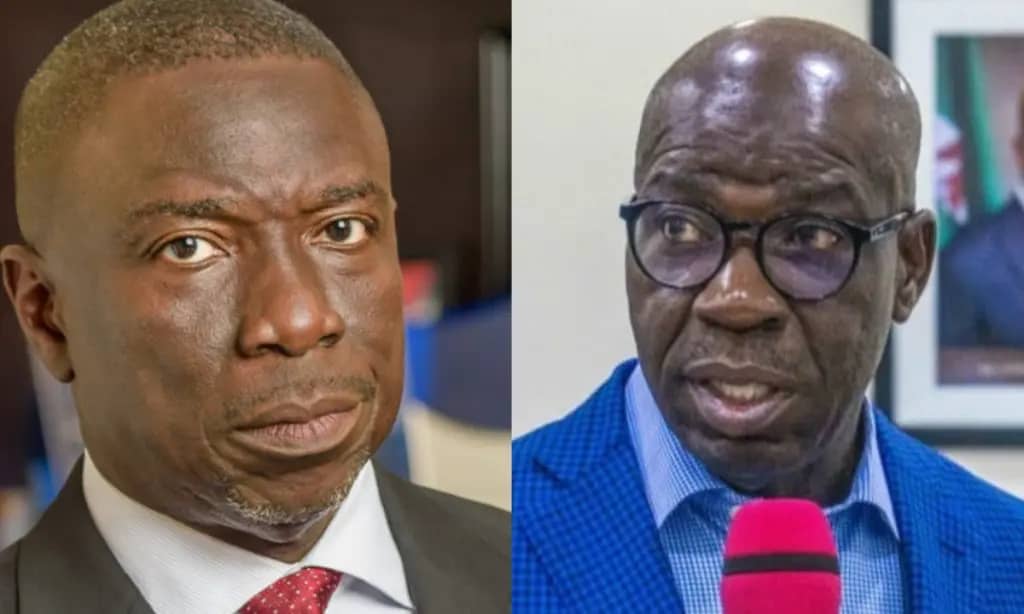Obaseki, Asue Disappointed As Oba Of Benin Receives Stolen Artefacts, Refuses To Congratulate Monarch
By Editor
Edo State Governor Godwin Obaseki and his political godson, Asue Ighodalo, who is contesting to succeed him, have both declined to congratulate the Oba of Benin, Oba Ewuare II, over the return of stolen Benin artefacts from Germany to the ancient palace.
By shunning the event, which has elicited joy and congratulatory wishes from prominent Benin figures and other dignitaries from Edo, Obaseki confirms the continuation of his feud against the Oba regarding the custody of the artefacts.
The governor had attempted to claim ownership of the artefacts, asserting superiority over the Oba and insisting that the precious items belonged to the state. His actions, including undermining the palace in key meetings, necessitated the intervention of former President Buhari, who resolved the controversy initiated by Obaseki with a gazette firmly establishing the Oba’s legal ownership and custody of the artefacts.
Following their return this weekend, an event that sparked celebrations at the palace, with the Oba himself leading the jubilation through dance, Obaseki reportedly expressed his disappointment to close allies and friends, including Asue Ighodalo, who allegedly shares Obaseki’s disdain for the palace.
Both Obaseki and Ighodalo have remained silent on the matter, refusing to congratulate the Oba or offer good wishes. The artefacts are integral to the commercial viability of the rival museum that the governor began constructing in collaboration with private sector friends, initiating a battle with the Oba for custody of the kingdom’s heritage and prized historical items.
This comes amid an ongoing court case in which certain Enigie, supported by the Obaseki-led state government, challenge the Oba’s authority as the head of the Benin Traditional Council. This challenge, unprecedented in nature, is widely attributed to Obaseki’s efforts to diminish the influence of the Palace.
Furthermore, the state government invoked a controversial 1979 law as justification for its decision to bypass the Oba in the payment of chiefs appointed by him, who would ordinarily fall under his supervision.
